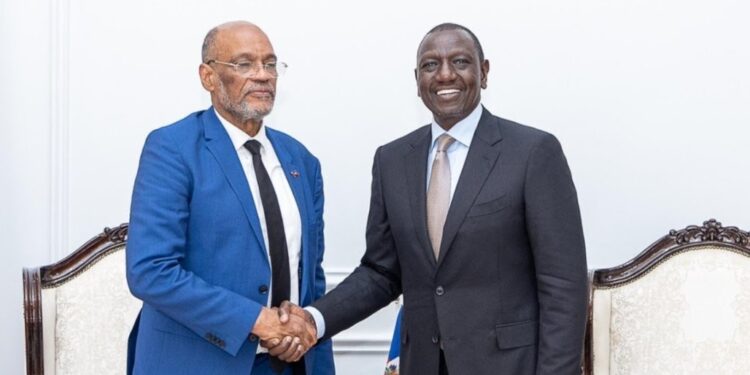Haitian Prime Minister Ariel Henry has stepped down from his role as the head of the Caribbean nation, as announced by Irfaan Ali, the chair of the Caribbean Community (CARICOM) and President of Guyana. Henry, a 74-year-old neurosurgeon, assumed the position following the assassination of the country's former president in 2021.
Ali expressed gratitude to Henry for his service to Haiti, acknowledging his resignation upon the establishment of a transitional presidential council and the appointment of an interim prime minister. The council, consisting of two observers and seven voting members representing various coalitions, the private sector, civil society, and a religious leader, has been tasked with promptly appointing an interim prime minister. Notably, individuals intending to run in Haiti's upcoming elections will be ineligible to participate.
Henry's resignation follows a meeting of regional leaders in Jamaica, where discussions centred on facilitating a political transition urged by the United States amid ongoing challenges to Henry's government by armed gangs. The establishment of a transition council aims to pave the way for Haiti's first elections since 2016.
U.S. Secretary of State Antony Blinken emphasized the necessity of urgent action on both political and security fronts, calling for the formation of a broad-based, inclusive, independent presidential college. He underscored the council's role in addressing the immediate needs of the Haitian people, facilitating the deployment of a security mission, and creating conditions conducive to free and fair elections.
The resignation coincides with ongoing discussions among regional leaders regarding participation in an international force to assist in combating gangs, whose activities have exacerbated a humanitarian crisis in Haiti. The United States has pledged an additional $100 million to support this force, along with $33 million in humanitarian aid, bringing its total commitment to $300 million. However, the approval and disbursement of funds remain pending, with only a fraction of the pledged amount deposited into the UN's trust fund as of Monday.
Amid escalating violence and insecurity, concerns persist over the potential consequences of gang control over ports and airports, which could impede humanitarian aid efforts. With international interventions in Haiti's past yielding mixed results, calls for effective security measures resonate strongly, emphasizing the need for concerted action from stakeholders with vested interests in the region.

